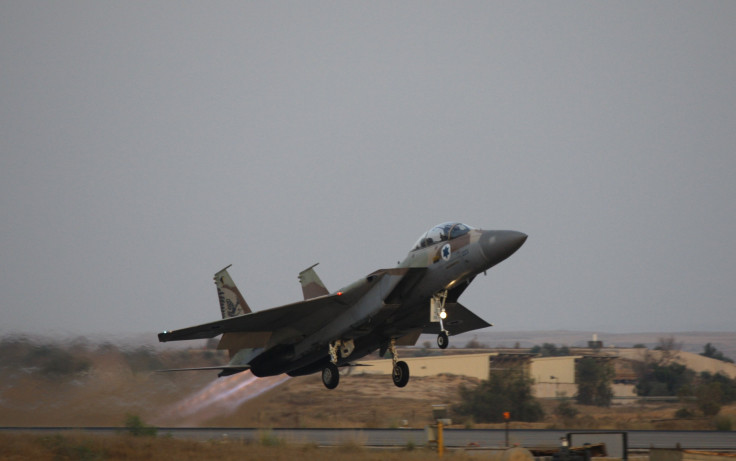Israel Hits Damascus: Officials In Israel, UN And Lebanon Mute On Rumored Airstrikes

The state-run news agency in Syria, SANA, reported Wednesday that Israeli warplanes entered Syrian airspace and struck a military research center outside Damascus, killing two people and injuring five more. No confirmation of the strike has yet been made by the Israelis.
The strike took place in the Jamraya area, northwest of Damascus. The strike caused “considerable material damages and destructon to the building, in addition to a vehicular development center and a garage,” SANA reported. The Syrian General Command said that this strike was “in blatant violation of Syrian sovereignty and airspace.”
If confirmed, this would be the second attack Israel has carried out in Syria within 24 hours.
The Associated Press and Reuters reported earlier on Wednesday that an Israeli airstrike took place on armed Syrian convoys close to the Lebanese border on Wednesday morning local time.
Israel’s Channel 10 news later reported that the targets of the strikes were several Russian-made SA-17 surface-to-air, medium-range missiles and that the attacks occurred near Al-Zabadani, a city in southwest Syria. Russia has continued to sell millions of dollars’ worth of arms and armaments to Syria's government during the almost two-year conflict, citing contractual obligations.
A statement from the Lebanese Army said that eight Israeli warplanes flew over the south of Lebanon on Tuesday, and four others flew over the town of Naqoura in the south on Wednesday. A Lebanese Army official told the AP that the flights were part of “increased activity” but gave no further comment. An unnamed Western diplomat also told Reuters that “something happened” but wouldn’t give further details. Later on Wednesday, the U.S. confirmed that Israel had been behind that attack.
Israel Defense Force spokeswoman Avital Leibovich said that the IDF had no comment. A spokesman for the U.N. told reporters at a daily press briefing that the U.N. had received no official report of the incident yet and had no further comment except to say that “there were a high number of Israeli overflights in the region, and it’s a daily violation that continues to happen, but that is all the information that U.N. forces have, and we cannot make any further comment.”
The U.N. spokesman was similarly uninformative when asked whether there’s any concern that Syria’s chemical weapons will end up in Lebanon, a matter of great concern to Israel. On Sunday, Israeli Vice Prime Minister Silvan Shalom told Reuters that a red line for Israel would be if it looked like Syrian President Bashar al-Assad didn’t have control of his stock of chemical weapons. However, on Tuesday, he refused to comment on Israel's activities along its northern border with Syria.
At least one Israeli didn't think it would be possible for Israel to succesfully target Syria's chemical weapons from the air. “The chances that someone was able to bomb a chemical weapons convoy without causing significant environmental damage is very small,” Lt. Col. Dany Shoham, an Israeli reserve officer and expert on chemical and biological weapons in the Middle East, said to the Times of Israel.
A Hezbollah spokesman similarly told Lebanon’s Daily Star that he had “no information” on the rumored strike, and Lebanese Prime Minister Najib Mikati also said that he “heard about the aerial raid ... but I haven’t received any confirmation from Lebanese authorities.”
Hours before the first strike on Wednesday morning, the head of the Israeli Air Force, Major General Amir Eshel, gave a speech in which he explained the unpredictablity of Syria's, and thereby Israel's, situation.
"In Syria ... a state that is in a process of disintegration ... none of us has a clue as to what will be there on the day after," Eshel said. "Add to that a huge weapons arsenal, some of which is state-of-the-art, some of it unconventional, and all of this is happening -- I can't call it our backyard but on our borders. So we have challenges here ranging from the limited ones to the very large ones."
A Syrian activist based in New York who wished to remain anonymous told the IBTimes that while it's unlikely that these strikes will mean more public support for Assad, it does highlight Assad's weakness at the moment. "The Israeli airstrikes show the inability of the regime to protect its land," the activist said. "While [Assad] is busy shelling his own people, our national security is at stake, and the problem is now escalating. The whole region is at risk."
© Copyright IBTimes 2024. All rights reserved.





















